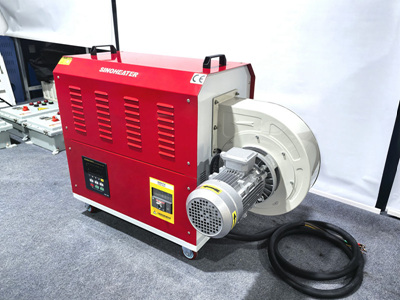Effective Strategies for Researching Brand Reputation When Selecting a Heat Blower
Evaluating brand reputation is a critical step in purchasing a heat blower, as it reflects a manufacturer’s commitment to quality, reliability, and customer satisfaction. A strong reputation often correlates with durable products, responsive support, and transparent business practices, reducing long-term risks for buyers. Below are actionable methods to assess brand credibility without relying on promotional content or biased reviews.
Leveraging Third-Party Review Platforms for Unbiased Feedback
Aggregated Review Analysis on Industry-Specific Websites
Explore niche platforms dedicated to industrial equipment, HVAC systems, or construction tools, where users share detailed experiences with heat blowers. Look for patterns in feedback, such as recurring praise for durability or complaints about service delays. Pay attention to reviews from verified buyers, as these are more likely to reflect genuine usage scenarios than anonymous posts.
Comparative Ratings on General Consumer Sites
Websites like Trustpilot or Consumer Affairs compile ratings across multiple brands, offering a broad perspective on customer satisfaction. Filter reviews by relevance to heat blowers and prioritize comments mentioning specific use cases (e.g., “works well in a dusty warehouse”). Avoid brands with a high volume of unresolved complaints or generic responses from customer service teams, as these indicate poor conflict resolution.
Social Media Sentiment Tracking
Monitor hashtags, forums, and groups related to heating equipment on platforms like LinkedIn, Reddit, or X (formerly Twitter). Users often discuss brand experiences in real time, highlighting issues like part availability or warranty hassles. Tools like Brandwatch or Mention can automate sentiment analysis, flagging negative trends or emerging concerns about a brand’s reliability.
Analyzing Long-Term Reliability Through Industry Certifications and Awards
Certification Bodies and Compliance Standards
Reputable brands invest in certifications such as ISO 9001 (quality management), UL (safety), or CE (European conformity), which signal adherence to rigorous testing protocols. Check if certifications are current and specific to heat blower categories, as outdated or generic approvals may not guarantee performance in demanding environments.
Industry Award Recognition
Awards from trade associations or publications (e.g., “Best in Class” for energy efficiency) often require independent evaluation of product design and customer impact. Research the criteria for each award to ensure it aligns with your priorities, such as innovation, sustainability, or cost-effectiveness. Brands that consistently win accolades demonstrate a track record of excellence.
Third-Party Lab Testing Reports
Some manufacturers commission unbiased labs to test heat blowers for metrics like airflow consistency, noise levels, or energy consumption. Request access to these reports or search for summaries online to compare performance data across brands. Transparent sharing of test results indicates confidence in product quality and a willingness to be held accountable.
Evaluating Customer Support and Post-Purchase Engagement
Warranty Terms and Claim Processes
A brand’s warranty policy reflects its confidence in product longevity. Look for clear terms outlining coverage duration, excluded components, and procedures for filing claims. Brands that offer extended warranties or on-site repair services demonstrate a commitment to customer retention, whereas vague or restrictive policies may signal potential hidden costs.
Technical Support Availability and Expertise
Test a brand’s support channels by submitting inquiries about heat blower specifications or troubleshooting steps. Assess response times, clarity of answers, and whether representatives demonstrate product knowledge. Brands with 24/7 phone support, live chat, or multilingual teams are better equipped to handle urgent issues, reducing downtime in critical applications.
User Community and Knowledge Base Accessibility
Established brands often maintain online forums, video tutorials, or downloadable manuals to empower users. Evaluate the depth of these resources—do they address common problems like filter replacement or motor maintenance? Active communities also provide peer-to-peer support, which can be invaluable for resolving niche issues without contacting official support channels.
Assessing Brand Stability and Ethical Practices
Company History and Market Longevity
Brands operating for decades typically have refined their manufacturing processes and supply chains, reducing the likelihood of quality inconsistencies. Research milestones like product launches, mergers, or recalls to gauge adaptability and accountability. Newer entrants may offer innovation but lack the proven reliability of established players.
Sustainability Initiatives and Corporate Responsibility
Environmentally conscious buyers should prioritize brands with verifiable sustainability goals, such as reducing carbon emissions in production or using recyclable packaging. Look for certifications like ENERGY STAR for efficiency or reports on ethical labor practices in supply chains. Ethical brands often align with broader values, fostering trust beyond product performance.
Transparency in Pricing and Marketing Claims
Avoid brands that exaggerate heat blower capabilities (e.g., “heats 5,000 sq ft instantly”) without providing context or test data. Reputable companies clearly communicate limitations, such as optimal operating conditions or compatibility requirements. Hidden fees, like mandatory service contracts, also indicate a lack of transparency and should raise red flags.
By combining these research tactics, buyers can identify heat blower brands with a proven track record of quality, reliability, and customer-centricity. Thorough due diligence minimizes the risk of purchasing from companies that prioritize short-term gains over long-term satisfaction, ensuring a durable and efficient heating solution for diverse applications.



